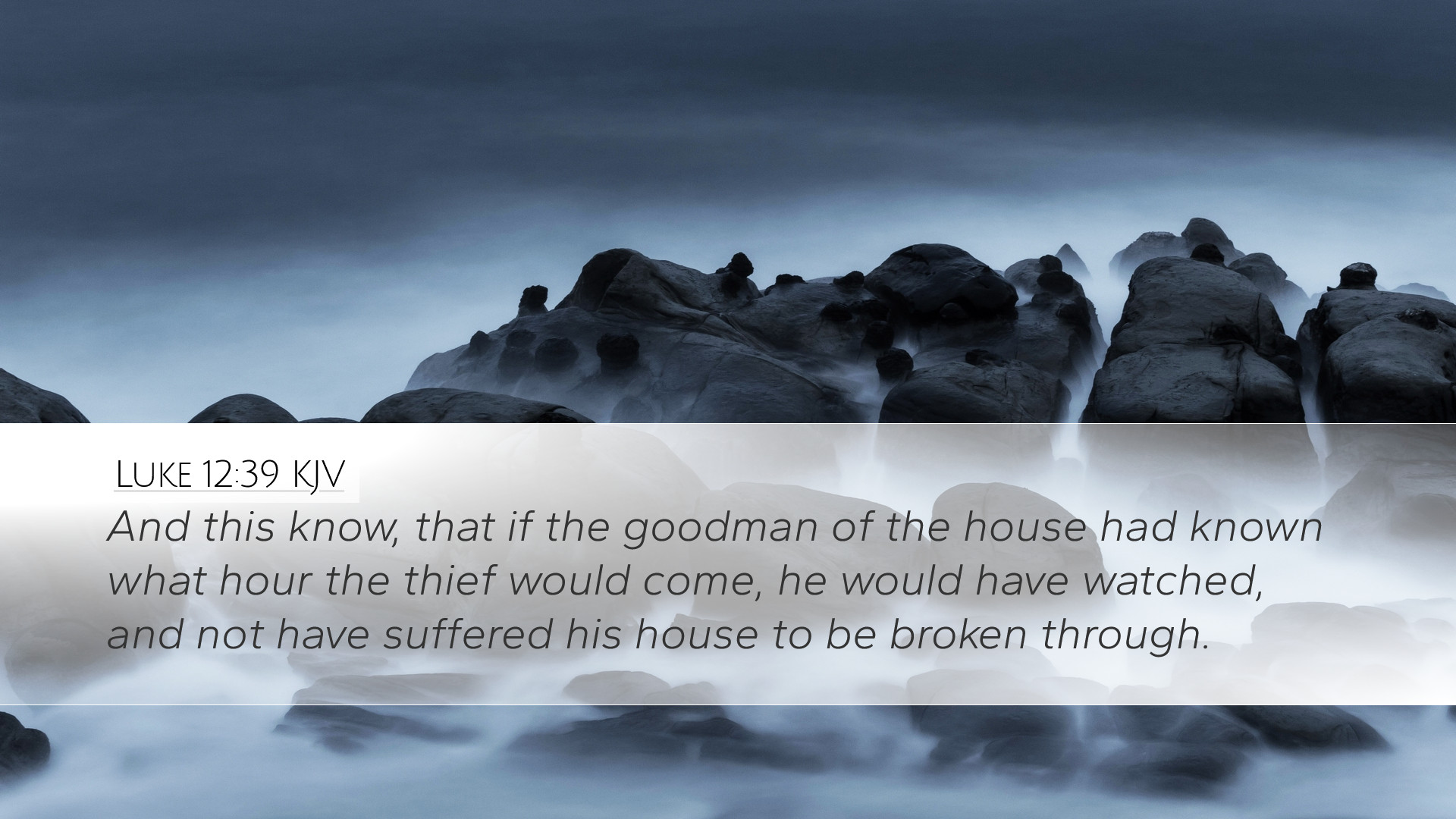Commentary on Luke 12:39
Verse Text: "But know this, that if the master of the house had known what hour the thief would come, he would have watched and not allowed his house to be broken into."
Introduction
Luke 12:39 serves as a crucial admonition regarding the importance of vigilance and preparedness in the Christian life. In this verse, Jesus uses the metaphor of a householder and a thief to illustrate the necessity of being on guard against unexpected spiritual threats.
Contextual Analysis
To understand this verse, it is essential to explore its context within Luke 12. The broader passage discusses themes of readiness, the coming of the Son of Man, and divine judgment. In this setting, verse 39 emphasizes the need for awareness of spiritual realities that can catch believers off guard.
The Master of the House
The "master of the house" represents not only individuals but can also signify leadership within the church or household. Matthew Henry points out that this figure illustrates responsibility; leaders must be attuned to the spiritual state of their domain.
“In reference to the care of our souls and families, we must be vigilant as masters of our own houses.” This vigilance extends beyond mere oversight; it involves active guarding against potential spiritual intrusions.
The Coming of the Thief
The comparison to a thief is particularly poignant. Albert Barnes notes that a thief is not only unexpected but also destructive. This serves to remind believers that the coming of spiritual threats (e.g., temptation, false doctrine) may occur at the least expected moments:
- Unexpectedness: Just as a thief may strike without warning, so too can challenges to one's faith emerge.
- Preparation: The implication is that believers should always be ready, thus echoing the words of Christ repeatedly throughout the Gospels—"Watch!"
Spiritual Implications
From a theological perspective, this verse can also be interpreted as a warning against complacency. Adam Clarke elucidates that Christians who become lax in their vigilance risk losing their spiritual possessions—such as peace, joy, and even the assurance of salvation.
“The lesson is one of unrelenting caution and preparedness, for the enemy of souls seeks to break into our lives and steal away our treasures.”
The Call to Watchfulness
This verse concludes with a call to proactive defense against spiritual adversities. It encourages believers not only to recognize potential threats but also to take preventive measures:
- Prayer: Being immersed in prayer fortifies the believer against the sudden incursions of doubt or fear.
- Scripture: Regular study and meditation on God's Word enable one to discern truth from falsehood in moments of trial.
- Community: Fellowship with other believers can provide accountability and encouragement in maintaining spiritual vigilance.
Conclusion
Luke 12:39 encapsulates the essence of vigilant faith. It serves as both a warning and an encouragement to remain alert, for the unexpected can strike at any moment. As believers embrace this teaching, they fortify their hearts against the temptations and distractions of life.
In this way, they fulfill their role as masters of their houses, ensuring their homes—whether spiritual or physical—are protected from spiritual marauders.
Reflection Questions
- In what ways can I increase my spiritual vigilance daily?
- How can I guard against becoming complacent in my faith?
- What strategies can I employ to prepare for unexpected spiritual challenges?


